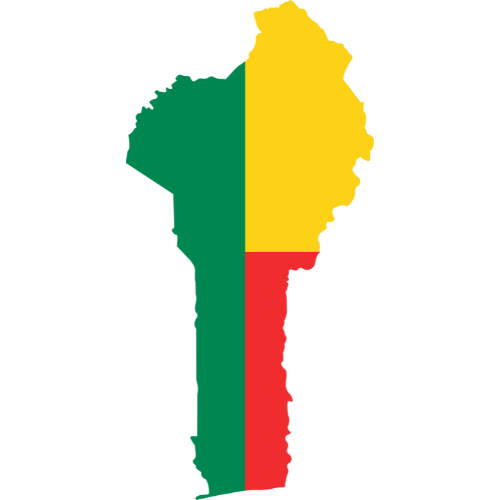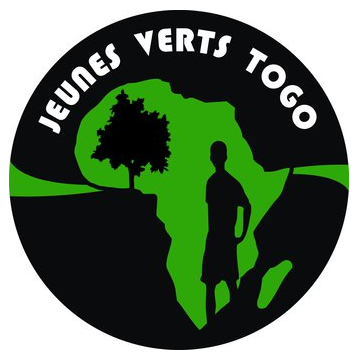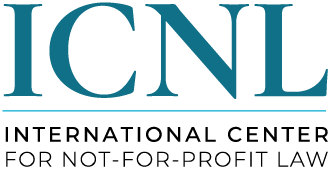Benin
WEST AFRICA CIVIC SPACE INDEX
Benin's civic space is aptly characterized as "challenged," indicating a balance between existing engagement opportunities and notable limitations. Concerns arise from arbitrary responses to protests, bureaucratic hurdles for civil society organizations, corruption within the judiciary, inconsistent enforcement of rights protections, and the harassment of activists.
However, amidst these challenges, Benin showcases strengths, notably a diverse media landscape and supportive legal frameworks in certain domains. Strategic utilization of these strengths could serve as a foundation for addressing limitations on civic space.
The country's civic landscape reflects a nuanced balance between progress and persisting gaps. Issues such as governance, human rights, and civic freedoms remain focal points for improvement. The findings underscore the importance of targeted reforms, informed by grassroots perspectives, to effectively translate democratic principles into a more open and inclusive civic space in Benin.
Indicator Assessments
Freedom of Assembly:
The right to protest faces challenges in Benin, as authorities impose arbitrary bans and employ excessive force against demonstrators. While the legal framework is adequate, its inconsistent implementation hinders full respect for this right.
Freedom of Expression:
Diverse media outlets exist, but journalists encounter harassment, particularly in political coverage. Defamation laws and uneven press freedoms contribute to challenges in the expression of diverse viewpoints.
Freedom of Association:
Registering civil society organizations (CSOs) is straightforward, but bureaucratic hurdles and government interference in activities pose obstacles. Laws governing CSOs could be enhanced to ensure greater independence.
Rule of Law:
Corruption within the judiciary undermines protections, and arbitrary arrests indicate uneven enforcement. Limited access to legal aid for marginalized groups further complicates the rule of law landscape.
Political Participation:
While elections are competitive, biases in voter registration disadvantage opposition groups. Efforts to increase the participation of women and youth in politics could address these disparities.
Civil Society Participation:
CSOs actively engage in policy discussions but have limited influence on final decisions. Enhancing the inclusivity of public consultations could amplify the impact of civil society contributions.
Human Rights Protection:
Despite robust legal protections, uneven enforcement persists, with discrimination against minorities. Abuses by security forces indicate the need for stronger mechanisms to protect human rights.
Anti-Corruption and Transparency:
Although anti-corruption laws are in place, corruption remains high. Limited access to government data reflects uneven transparency, highlighting the need for more comprehensive measures.
Safety of Activists:
Activists face threats, intimidation, and arbitrary arrests. Existing protections are not always sufficient, leading to impunity for attacks. Strengthening enforcement mechanisms is crucial.
Access to Information:
Laws for access to information exist, but their inconsistent implementation hampers transparency. Increasing the availability of government data to the public could enhance transparency.
Gender Equality:
Policies to improve gender equality exist, but women remain underrepresented in governance, and discrimination, especially in areas like land ownership, persists.
Digital Rights:
While internet access has grown, authorities impose restrictions such as social media blackouts during protests. Limited data privacy protections highlight the need for comprehensive safeguards.
Challenges and Opportunities
Benin faces challenges to its civic space, marked by restrictions on freedoms, corruption, and uneven rights protections and enforcement. Arbitrary limitations on assembly and expression rights pose a significant hurdle, and addressing these restrictions would pave the way for an expansion of civic freedoms. Corruption in both the government and judiciary undermines governance and the rule of law, necessitating stronger enforcement of anti-corruption laws and protections for whistleblowers.
The harassment and intimidation of civil society actors and journalists contribute to a climate of fear, highlighting the need for accountability for threats and the end of impunity for attacks. The uneven enforcement of legal protections results in discrimination and other abuses, emphasizing the importance of increased oversight of security forces and improved access to justice for marginalized groups.
Amid these challenges, Benin possesses legal frameworks supporting rights and freedoms in some areas. Strengthening the implementation and enforcement of these laws can serve as a foundation to expand civic space. The vibrant civil society in Benin persists in pushing for openness despite restrictions. Removing administrative and legal hurdles for civil society organizations (CSOs) would further empower them to contribute meaningfully to development and accountability.
Ongoing support for Benin's democratic institutions, coupled with increased protections for inclusion and participation, can consolidate gains and harness the democratic foundations of the country. Lifting restrictions on freedoms, addressing corruption, enforcing rights evenly, and empowering civil society are pivotal steps for Benin to translate its democratic principles into a more open civic space.
Country Classification: Challenged
Based on analysis of the 12 indicators, Benin's civic space can be classified as "Challenged." While some progress has been made, significant gaps and restrictions persist in key areas that hinder the full realization of civic freedoms.




